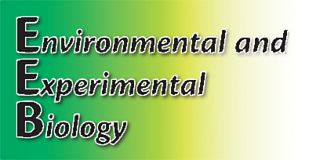
On-line: ISSN 2255–9582

| Faculty of Biology, University of Latvia | ||||||

|
Hard copy: ISSN 1691–8088
On-line: ISSN 2255–9582 Env Exp Biol (2014) 12: 137–142
|
|||||

|
About the Journal | Retractions | Open Access | Author Guidlines | Current Issue | Archive |
|
Environmental and Experimental Biology |
Env Exp Biol (2014) 12: 137–142 |
Magnetic fields (MFs) can alter plant growth and development. One way of applying a MF is by magnetizing water, thus creating magnetic water (MW). This review focuses on the use of MW in a bid to alter plant growth and development. Irrigation with MW can improve the growth and development of plants both quantitatively and qualitatively. It can improve the germination of seeds, early vegetative development of seedlings and can also alter the mineral content of seeds or fruits. Therefore, MW could be one of the most promising ways of applying a magnetic field in the future to enhance agricultural production in an environmentally friendly way. The effect of MW, which depends on the quality and ion-content of the water and on the type of magnetization, is very strongly species- and genotype-dependent. Researchers seeking to use MW as an abiotic stress agent, or as a growth-inducing or growth-inhibiting factor ought to first test ideal parameters, preferably against the use of permanent magnets with sustained magnetism, since MW can lose its magnetism over time and distance.